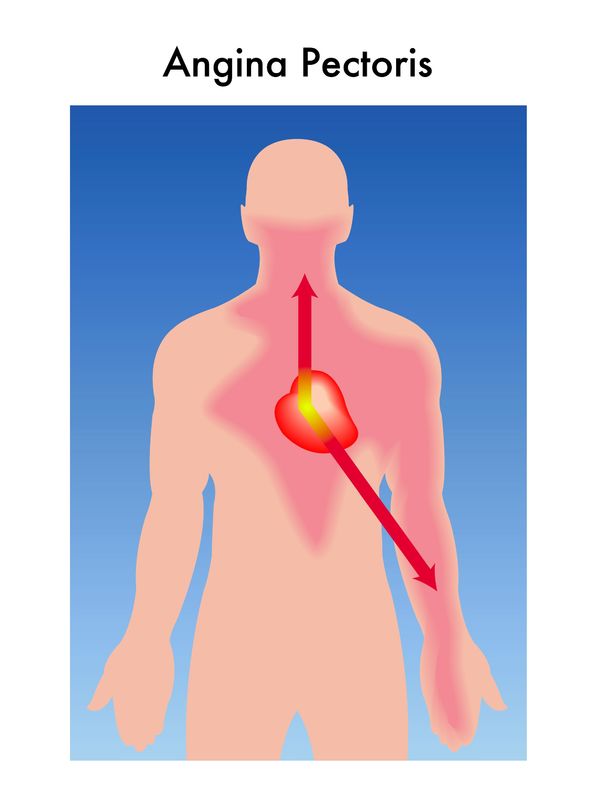Angina

Angina means chest pain, but specifically cardiac chest pain.
This is caused by a blockage or reduced blood flow to an area of the heart. Less commonly, angina can be caused by inflammation, spasm of the heart arteries or a tear in one of the heart arteries (dissection).
Angina can be a warning sign of a heart attack.
If someone has angina lasting more than 10-15 minutes, and especially if it is associated with shortness of breath, abnormal heart beats, sweating, nausea or dizziness then you should call 911 and seek immediate medical assistance.
 Symptoms
Symptoms
-
Some will describe angina as chest pain, others as pressure or a dull ache.
-
Some patients will have unusual angina symptoms with no discomfort and just shortness of breath, abnormal heart beats, sweating, nausea or dizziness.
-
These symptoms are most concerning if they are associated with exertion, especially if the symptoms seem unusually severe for the amount of exertion being performed.
Diagnostic Tests
Treatment
-
Depends on the cause of the angina.
-
Nitroglycerin relaxes blood vessels and improves blood flow to the heart.
-
Beta blockers (metoprolol, atenolol, etc) relax the heart and blood vessels and decreases strain on the heart.
-
If the angina is due to a blockage in the heart arteries it may require consideration of placing a stent in the heart artery or even bypass surgery in some cases.
Print this information
For Additional Information